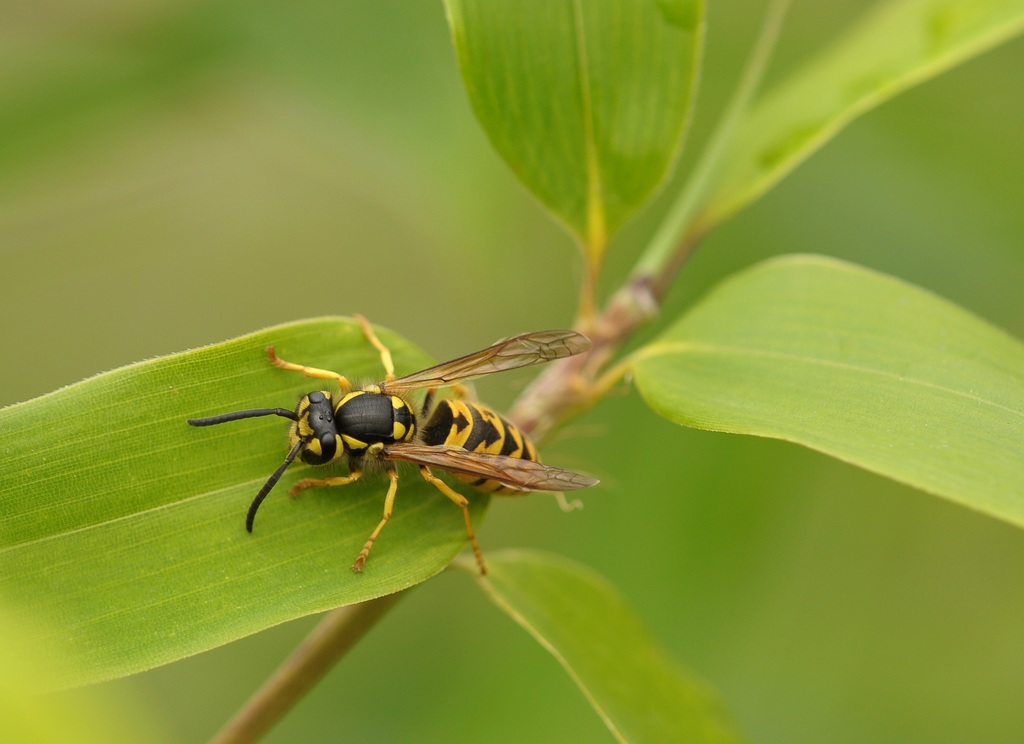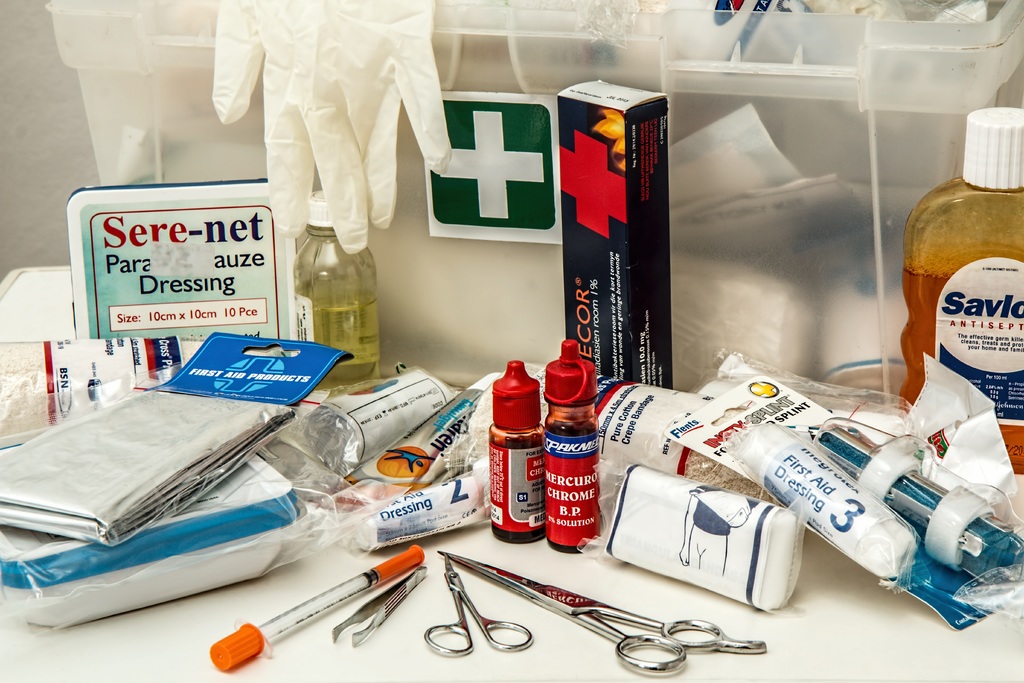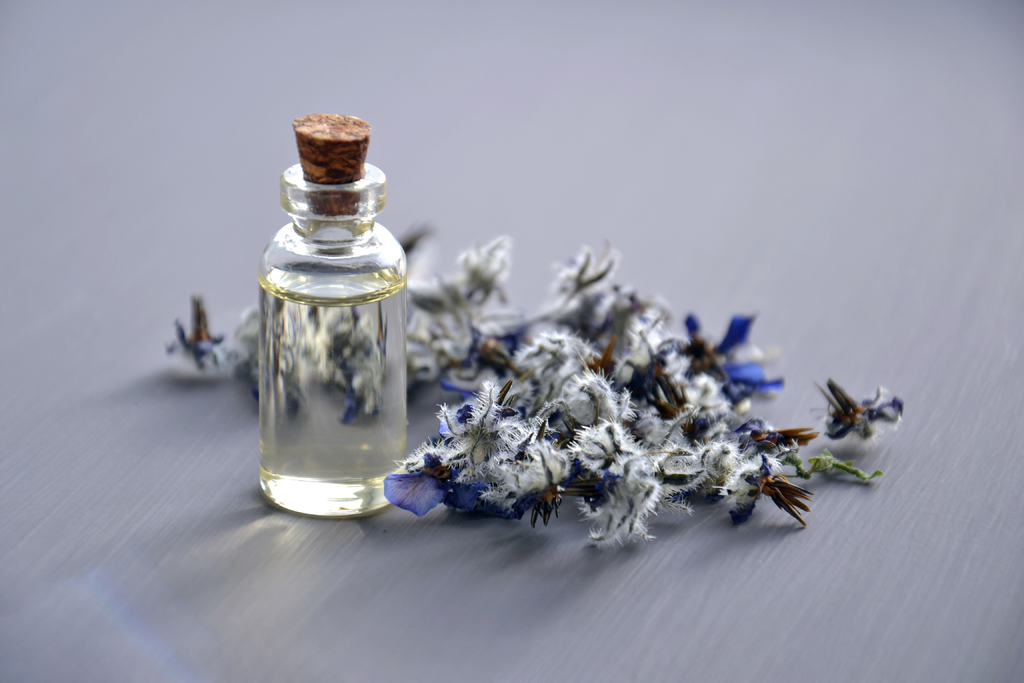
So, what do you do if you have a wasp sting? Here’s everything you need to know about treating an irritating sting!
What to Do If You Have a Wasp Sting
When you have a wasp sting, it’s important to act quickly. The sooner that you can treat it, the sooner that you will feel better. Before thinking about essential oil for wasp stings, you’ll want to take a few simple first aid steps.
The first thing to do is to remove the stinger. Leaving this in your skin increases the amount of venom released so work as quickly as you can. If you get the stinger out right after it happens, it will hurt less.
The ideal way to get the stinger out is with tweezers but, of course, not everybody carries one of those around! A good fix when you are on the go is a credit card or any other hard plastic card you might have with you. If you scrape it across the surface, it will likely catch onto the card and pull the stinger out.
How to Treat a Wasp Sting
Once you have the stinger out, the next thing to do is wash the irritated areas well with soap and water. Carefully clean the area then focus on eliminating the pain.
While a wasp sting shouldn’t be overwhelmingly painful, it will be very irritating, especially to those with sensitive skin. The best solution to soothing a wasp sting is with ice.
To ice your sting, wrap ice into a towel (applying it directly to your skin can be too irritating) then leave it on for 20 minutes. The more often that you can do this the better. Just make sure to give your skin a break in between. For the first day, try icing 20 minutes every hour until you start feeling some relief.
Essential Oil for Wasp Stings
After you have cleaned and iced the area, it’s time to start looking at effective essential oil for wasp stings. Utilizing these safe and affordable home remedies is the perfect way to get quick relief.
If you love essential oils, you have probably already experienced lavender. It is one of the most popular essential oils on the planet! Not only is this sweet smelling stuff effective at helping you to relax, it’s also perfect for skin irritations.
Lavender is a favorite essential oil for wasp stings because it is anti-inflammatory, pain relieving, and antiseptic. It is one of the first oils that people reach for in cases like a wasp sting because it provides instant relief. The soothing smell will also relax you as soon as you open the bottle.
Another staple of any essential oil lover’s toolkit is tea tree oil. This incredible stuff can transform your skin in a second. You might have already heard that tee tree oil is a powerful fix for oily, acne-prone skin. This strong essential oil is so good at keeping breakouts away because tee tree oil is antibacterial, antimicrobial, and will leave your skin clean and ready to heal. On top of that, tree tree oil is such a good essential oil for wasp stings because it quickly relieves the burning, itching, and inflammation.
Last but not least, chamomile essential oil is an incredible essential oil for wasp stings. Like lavender and tea tree oil, this stuff will soothe irritated skin while relieving pain. Thanks to its antiseptic properties, you can reduce your risk of infection while eliminating swelling.
Other Options to Treat Wasp Stings
It is essential to realize that some people react more strongly to wasp stings than others. While it is normal to feel some irritation afterwards, some people have severe allergic reactions to wasp stings. If the swelling is severe, you are having trouble breathing breath, or just generally are feeling very unwell, get to the doctor ASAP.
If it is more of a minor reaction, look into options like antihistamines. Non-drowsy daytime pills like Claritin will reduce irritation and swelling. If what you really need is pain relief, opt for acetaminophen or ibuprofen to reduce pain and swelling.
In addition to essential oil for wasp stings, hydrocortisone cream is another good topical options for reducing irritation.

